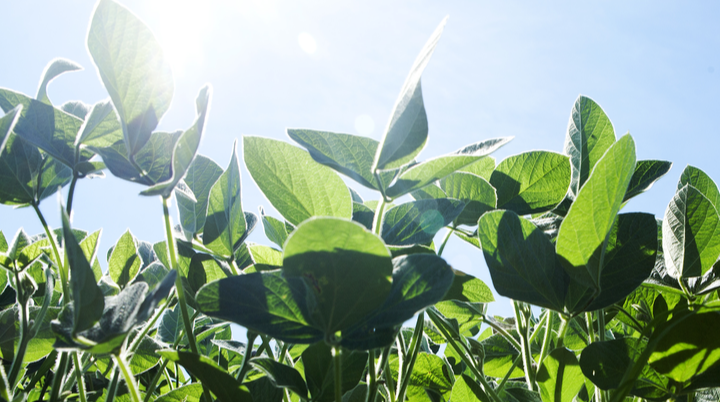Royal De Heus goes for sustainable soy in Europe
In the Netherlands, De Heus has been using sustainable soy for the production of compound feed since 2015. With the signing of the FEFAC Covenant 'sustainable soy', De Heus is taking an important step towards the use of responsibly grown soy for compound feed within its factories located in Poland, Spain, Portugal Czech Republic and Slovakia as well. The covenant stipulates that the use of responsible soy in compound feed in all feed mills situated in the European Union will be a reality by 2025 at the latest.

Koen de Heus, CEO of Royal De Heus, explains why the switch to sustainable soy is important to him:
Why does De Heus consider switching to use sustainable soy in compound feed within its factories situated in the European Union?
"We all know that the word population will contiue to grow. These people need acces to healthy and safe food. For which the world largely depends on agriculture and livestock farming. We expect that the world-wide demand for animal proteins (dairy, meat, eggs and fish) will increase by seventy percent in the next thirty years. This means that it is very important to produce our food as sustainably as possible. Therefore, we have worked to reach an agreement on the use of sustainable soy throughout the European Union through FEFAC (the European organisation of feed producers). This led to the recent signing of the Sustainable Soy Covenant.”
What is the main motivation for this commitment to sustainable soy?
"We see sustainability as increasingly important. In our own organisation, with our customers and in the rest of society. For ourselves, we try to reduce our impact on the climate and the environment step by step. In the Netherlands, we started our transition to sustainable soy in compound feed in 2015. This is a good time to take that step in the other European countries where we are active as well. Within FEFAC, criteria have been established for soy sustainability programs. These criteria are called the 'soy Sourcing Guidelines' and stipulate the way we must handle environmental issues. But there are also passages about working conditions, good farming practices and maintaining good relations with the community.”
It is a covenant, participation is voluntary, do you think that all European feed companies will join?“
The covenant was drawn up with the utmost care. There has been constant coordination with the national interest groups. We expect that all parties will ultimately comply with the guiding principles of the convenant.”
Does the importance of sustainability increase in other countries as well?
"There are, of course, differences between the countries in which we operate. For the countries of the European Union, sustainability is, in general, a growing theme. That does not mean that the demand for sustainble soy is the same in every country. In countries where there is less demand, we can play a role by putting sustainable soy on the agenda. Our colleagues in these countries are very enthusiastic about the contribution we can make to further improve the sustainability of agriculture and livestock farming."
Will more of the soy be sourced in Europe as well?
"That is certainly possible. By using soy grown in Europe, we limit the number of unnecessary transport movements. That's good for our carbon footprint. But it is not alwayst the best option. In our opinion, crops should be grown in areas which offer the best facilities. The soy yields per hectare are often significantly lower in Europe than in regions where climate conditions are more favourable. Raw materials sourced regional are therefore also not always more durable than raw materials that come from further away. If we use land in Europe for soy when that soil is actually more suitable for other commodities, it may be more durable to import. The Covenant ensures that import becomes more sustainable as well. Which is good for countries in South America where a lot of soy is produced."
Do you strive to make the use of other raw materials more sustainable?
Yes. Of course. We try to make use of residual flows from the food industry as much as possible. For example by using raw materials such as beet pulp and citrus pulp. About 65 percent of the raw material we use comes as residual flow from the food industry. In addition, we have a special team that supports livestock farmers, especially pig farmers, with the optimal use of residual flows in feeding their animals. Through this reuse of residual flows from the food industry, we contribute to further improving the circularity of raw materials and closing the mineral cycle."
When will sustainable soy be used in all European factories of De Heus?
"In the Covenant we agreed on 2025 at the latest. De Heus will try to make this tranistion faster than that.
Are you also going to use sustainable soy outside the European Union as well?
"Outside the European Union, there is less debate on the origin of raw materials. But we know that the use of raw materials all over the world will have to become more sustainable in the coming years in order to further reduce our impact on the climate and the environment. This means that we will also put the transition to more sustainable resources on the agenda in these countries.”
